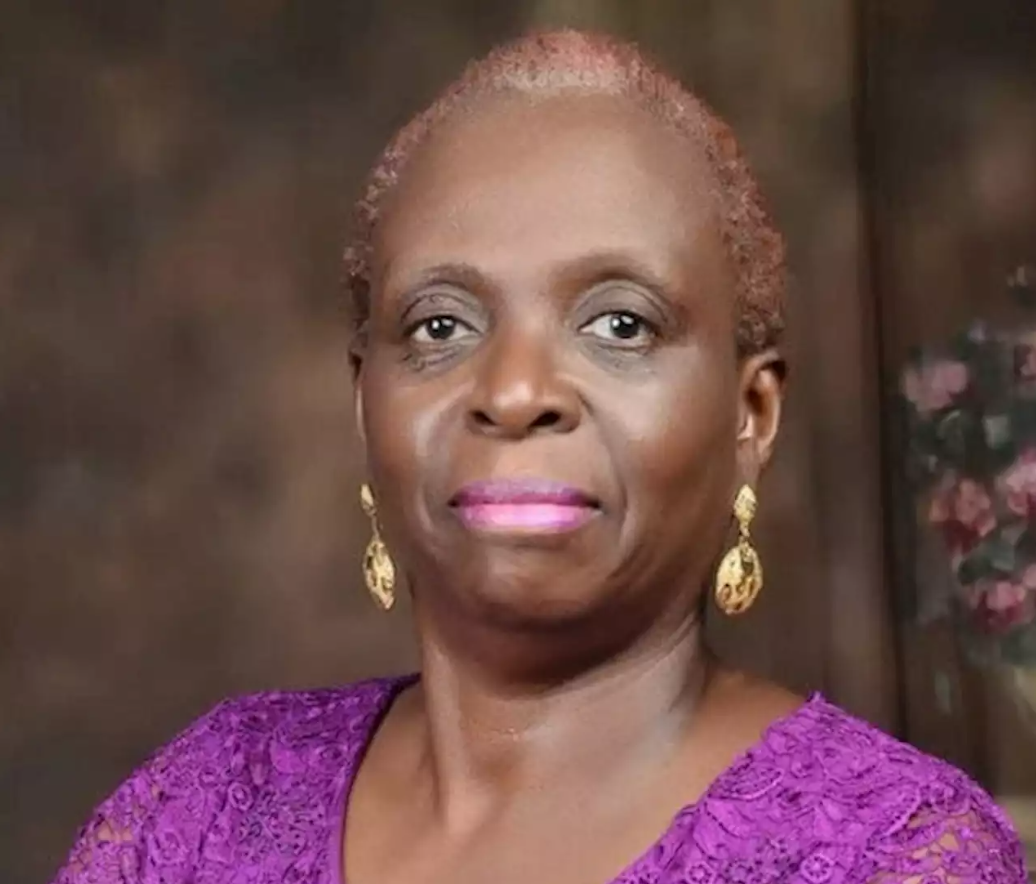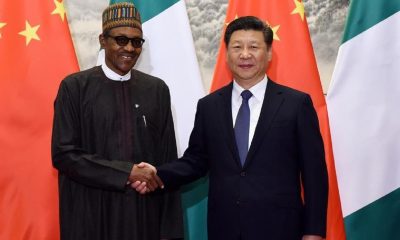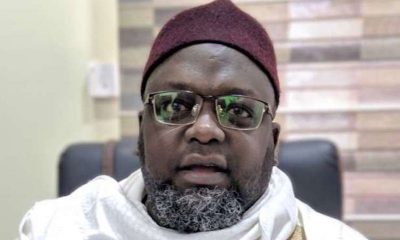Opinion
Anthony Enahoro, women and the Western House of Assembly, By Tayo Agunbiade
Enahoro’s Motion came at a critical time for women.

The revered nationalist and pro-democracy activist, Chief Anthony Enahoro is best remembered for his 1953 motion calling for Nigeria’s Independence in 1956. This bit of history stayed with him throughout his lifetime. However, he should be identified with another equally important piece of history.
According to a transcript discovered in the National Archives in Abeokuta, on January 20, 1953, Enahoro, a member of the Action Group in the Ishan Division, then part of the old Western Region, sponsored the following Motion:
This House regrets that there are no women Members in the House and prays that the Lieutenant Governor, to recognise women as one of the special interests not adequately represented in this House and to exercise his powers under section 34 of the Nigeria (Constitution) Order in Council, 1951, to appoint at least one woman Member to the House.
He did not stop there but went on:
“Owing to the slow development of the womenfolk of the country and the discriminatory methods of the electoral laws, not a single woman found her place in the House. The country might soon adopt the India system of reserving seats for women.”
He also said that if the Motion was accepted, he wanted three important factors to be put into consideration, that: (i) The appointments should be of a representative character; (ii) women of moral integrity should be appointed; and also (iii) women of intelligence.
Enahoro’s Motion came at a critical time for women. Up to that year, they only occupied seats in local government councils. In 1949, four women – Funmilayo Ransome-Kuti, Amelia Osimosu, Victoria Adetutu Soleye and Nusiratu Oduola – won elections to the Egba Central Council; and Oyinkan Abayomi (by nomination in 1944) and Henrietta Lawson (elected in 1950) had seats in the Lagos Town Council.
However, women were absent from Nigeria’s regional and central legislative institutions and had no voice in major issues that affected their lives.
Let’s consider this example: In December 1949, when the “Widows and Orphans Pension of African Officers Bill”, was debated on the floor of the Western House of Assembly, it was roundly rejected. The report on the debate amongst the unofficial members was published in the Nigerian Tribune of December 18, 1950.
According to the newspaper, “Chief W. E. Mowarin from Warri Province said he had consulted with many workers and they all agreed with him that if adopted, the law would bring endless trouble during and after the lifetime of the contributor. He advised that the scheme should only benefit orphans, because if the children of a woman are provided for, the woman herself is also provided for.”
The report further stated that members such as the then Ooni of Ife, Sir Adesoji Aderemi, Chief Timothy Odutola from Ijebu-Ode Province and several others all supported Chief Mowarin’s opinion of the Bill. Although the Honourable Members A. Soetan, the Aro of Kemta (Abeokuta), and Mr P. A. Oladapo from Ondo Province, believed in the spirit and letter of the Bill, they were in the minority, and ultimately, the Bill failed to pass.
Suffice to say, throughout the duration of the Second World War, press notices stating “The government’s regret at the casualties sustained by Units of the Nigerian Regiment serving overseas” were published. For example, in August 1941, the Comet published the names of fallen Nigerian soldiers in the following categories: “Killed in action; died of wounds received in active service; died on active service; missing believed killed on active service; accidentally killed on active service; wounded and missing on active service; and wounded in action on active service.” The widows and orphans left behind necessitated the drafting of the Bill in the first place.
With the 1951 Macpherson Constitution, the old-timer nominees in the House of Assembly were swept away, and replaced by an elected crop of young and fiery nationalists like the 30-year old Enahoro.
Alhaji Adegoke of the National Council of Nigeria and Cameroons (NCNC), who sat on the Opposition Bench, gave the Motion his full commendation: “If past performance would be taken into consideration in appointing a woman, there would undoubtedly be no difficulty in finding one who would sit on the NCNC bench.”
We can speculate that perhaps he may have been thinking of Funmilayo Ransome-Kuti, who was the leader of NCNC Women in Western Region. She had also been a member of the Party’s seven-person delegation that sailed to England to discuss the Richards Constitution, with the Secretary of State for the Colonies, Arthur Creech-Jones in 1947.
Support for the Motion came from Chief Joseph Odunjo, the renowned Yoruba poet from Egba Division: “It was incumbent on the menfolk to encourage women to march forward with them in politics as well as in the field of education. When women have seats in the House of Legislature, they would be encouraged to come forward with their justifiable income tax.”
Unfortunately, not everyone agreed. Prince Adedoyin Adeleke, a lawyer and a future speaker of the Assembly, objected to the idea on the grounds of its “unconstitutionality.” He said such a decision and discretion was up to the Lieutenant Governor. As we know, the latter – Mr Hugo Frank Marshall, C.M.G. – had the power to nominate and re-nominate Special Members to the legislature. He did this from the ranks of those into mining, banking and shipping etc, which in those years were exclusive male domains.
Another staunch opponent of the Motion was Chief Dennis Osadebay from Asaba Division. A legal practitioner, he is best remembered in history for several political posts, including being the Leader of NCNC Opposition in the Western House of Assembly and President of the Senate. The transcripts recorded Osadebay saying: The Order in Council provided seats for interests not otherwise represented and don’t husbands, uncles and nephews of women in the House adequately represent the women interests?” There is evidence to show that this view still has some credence in present-day Nigeria.
The Motion was saved by the Legal Secretary (unnamed) in the House, who said the Lieutenant Governor would be in order to appoint women. This seemed to convince those opposed to the idea, to change their minds. When subsequently put to the vote, the Motion was unanimously accepted.
Thus in January 1953, Remilekun Iseoluwa Aiyedun, the wife of Reverend W. O. Aiyedun, pastor of St. Paul’s Anglican Church, Igbore, in Abeokuta, became the first woman to take a seat in the regional legislature. She was not exactly a political outsider, having defeated Ransome-Kuti to win a seat on the Egba Alake Section of the Egba Central Council in 1952.
Her appointment made the front page headlines: “1st Woman Legislator makes history” proclaimed the Daily Service; for the Nigerian Tribune, it was : “House of Assembly Okays Motion for Women Legislators.” At a reception held in her honour at the Ibadan Catering Rest House, the Western Region’s Minister of Education, Chief Stephen Awokoya, noted that: “We all hope that many more women legislators will follow in 1956; the point of view of our women has always been lost in our legislature.”
In pre-Independence Nigeria, Enahoro’s Motion set the pace for a handful of women to be nominated to two of the three regional legislative houses. Two years later, Aiyedun was replaced by Lady Oyinkan Abayomi. In 1959, Margaret Ekpo and Janet N. Mokelu were appointed as Special Members in the Eastern House of Chiefs. No woman was nominated to the Northern Region’s legislative institutions.
Tayo Agunbiade is the author of Emerging From the Margins: Women’s Experiences in Colonial and Contemporary Nigerian History.
























